59 Useful Quotes By Harold Bloom On Strength, Change, Psychology And More
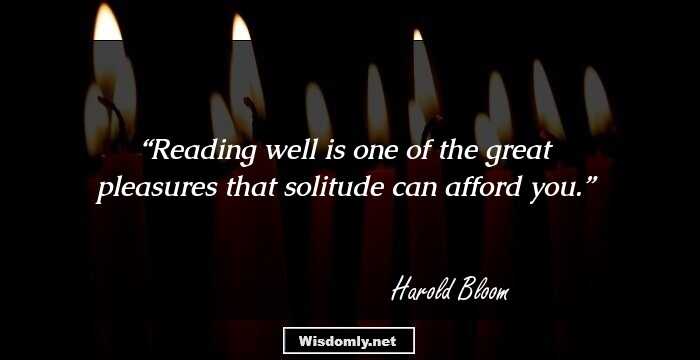
Reading well is one of the great pleasures that solitude can afford you.
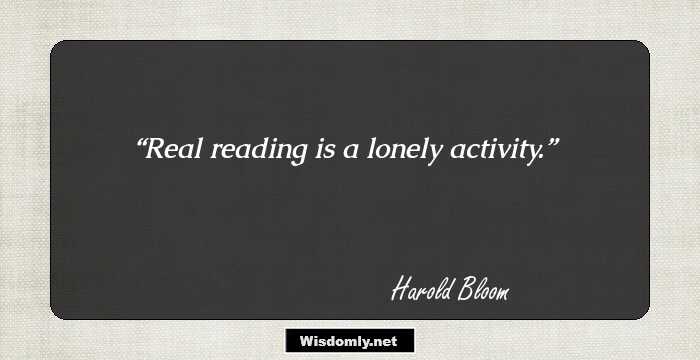
Real reading is a lonely activity.
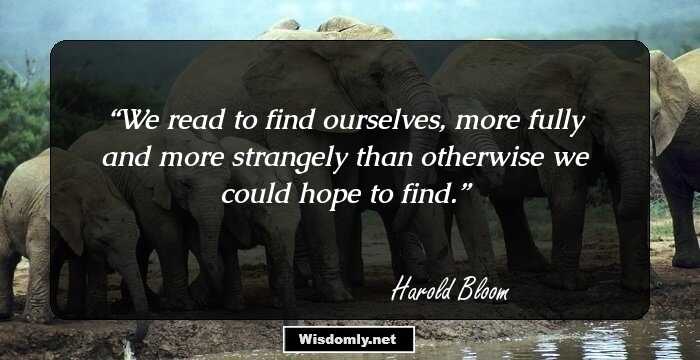
We read to find ourselves, more fully and more strangely than otherwise we could hope to find.
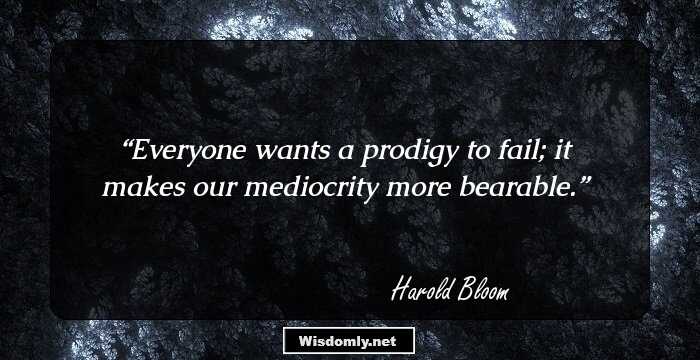
Everyone wants a prodigy to fail; it makes our mediocrity more bearable.
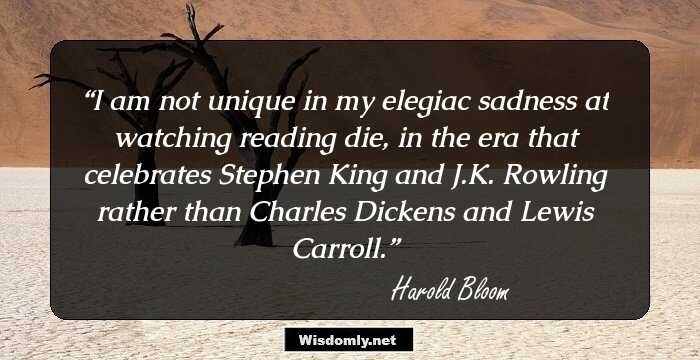
I am not unique in my elegiac sadness at watching reading die, in the era that celebrates Stephen King and J.K. Rowling rather than Charles Dickens and Lewis Carroll.
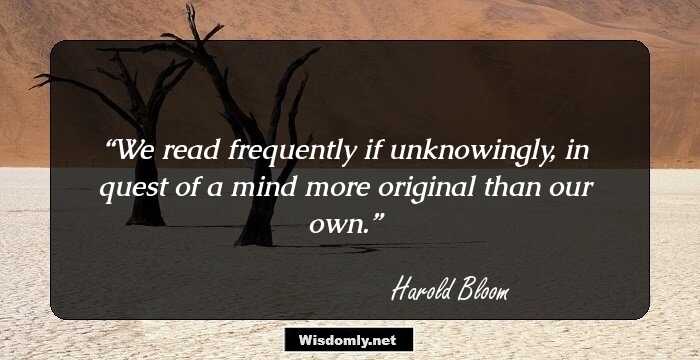
We read frequently if unknowingly, in quest of a mind more original than our own.
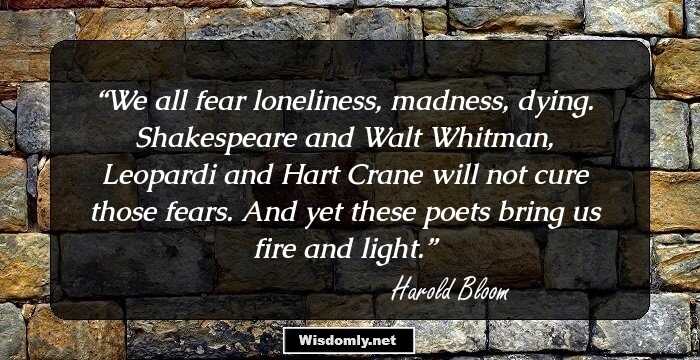
We all fear loneliness, madness, dying. Shakespeare and Walt Whitman, Leopardi and Hart Crane will not cure those fears. And yet these poets bring us fire and light.
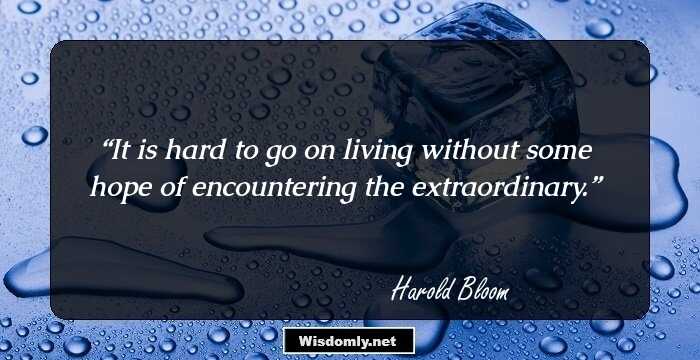
It is hard to go on living without some hope of encountering the extraordinary.
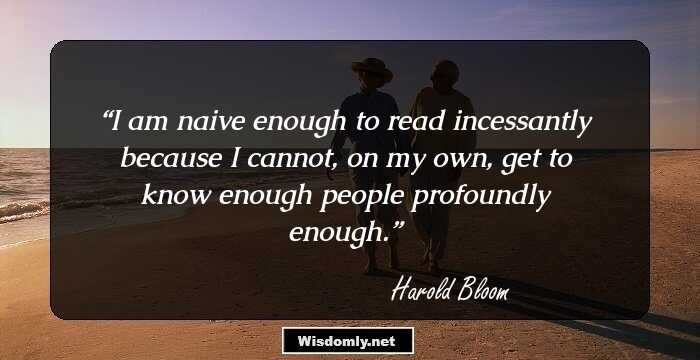
I am naive enough to read incessantly because I cannot, on my own, get to know enough people profoundly enough.
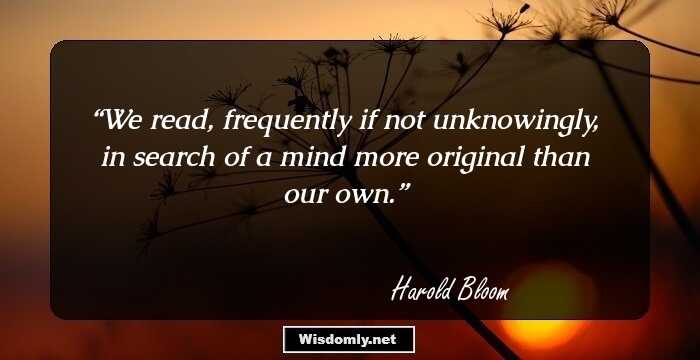
We read, frequently if not unknowingly, in search of a mind more original than our own.
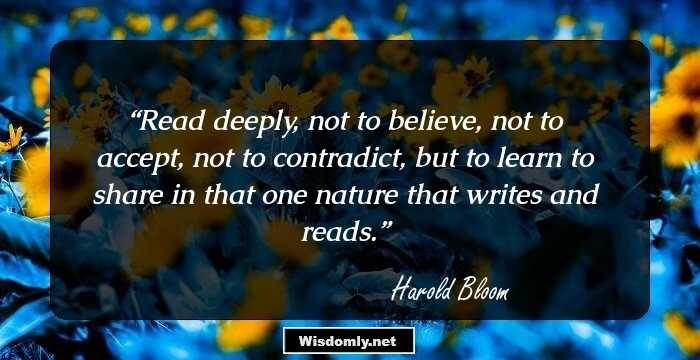
Read deeply, not to believe, not to accept, not to contradict, but to learn to share in that one nature that writes and reads.
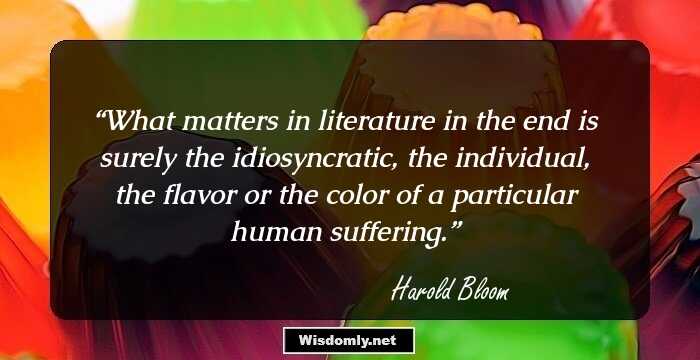
What matters in literature in the end is surely the idiosyncratic, the individual, the flavor or the color of a particular human suffering.
![The art and passion of reading well and deeply is waning, but [Jane] Austen still inspires people to become fanatical readers.](https://www.wisdomly.net/images/quotes/harold-bloom-60240.jpg)
The art and passion of reading well and deeply is waning, but [Jane] Austen still inspires people to become fanatical readers.
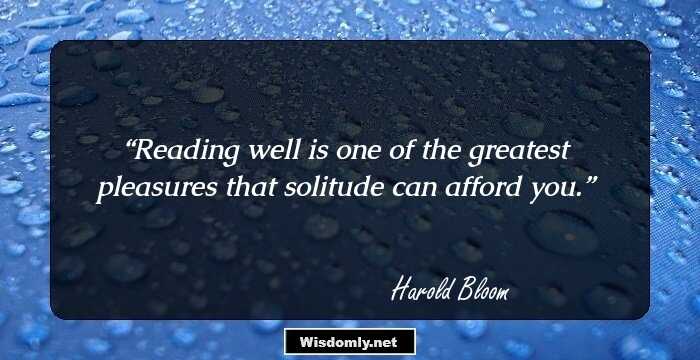
Reading well is one of the greatest pleasures that solitude can afford you.
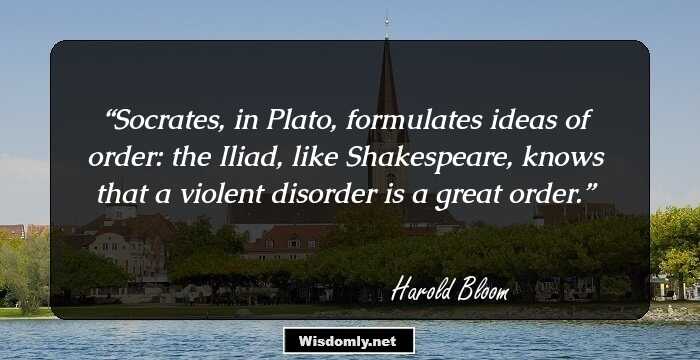
Socrates, in Plato, formulates ideas of order: the Iliad, like Shakespeare, knows that a violent disorder is a great order.
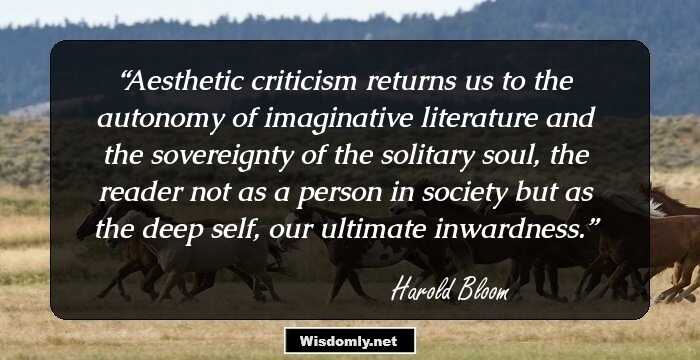
Aesthetic criticism returns us to the autonomy of imaginative literature and the sovereignty of the solitary soul, the reader not as a person in society but as the deep self, our ultimate inwardness.

We'll try this first. If it doesn't work, we'll try something else. That's life, isn't it?
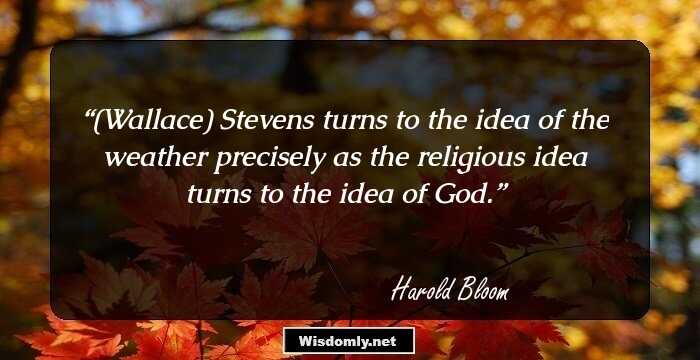
(Wallace) Stevens turns to the idea of the weather precisely as the religious idea turns to the idea of God.
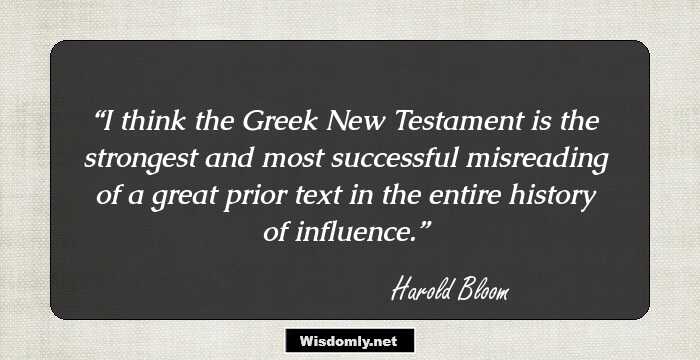
I think the Greek New Testament is the strongest and most successful misreading of a great prior text in the entire history of influence.
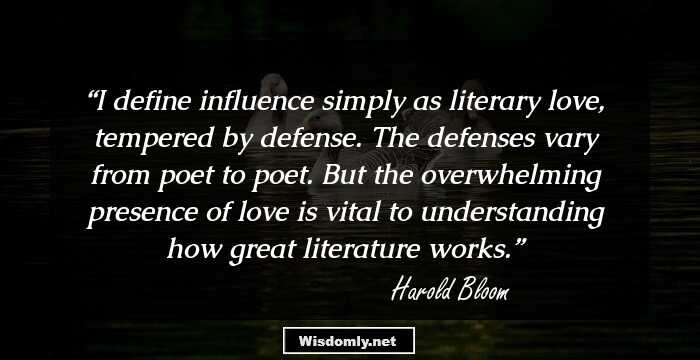
I define influence simply as literary love, tempered by defense. The defenses vary from poet to poet. But the overwhelming presence of love is vital to understanding how great literature works.

Until you become yourself," Bloom avers, "what benefit can you be to others.
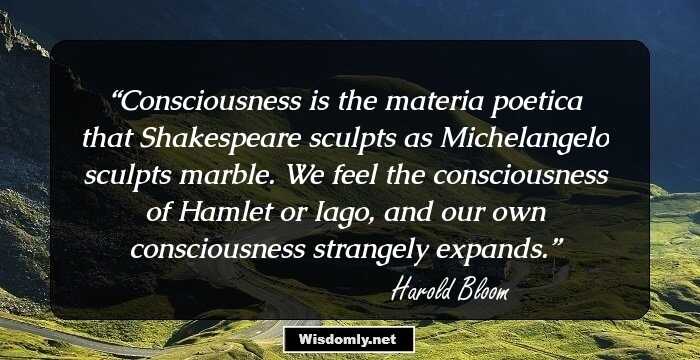
Consciousness is the materia poetica that Shakespeare sculpts as Michelangelo sculpts marble. We feel the consciousness of Hamlet or Iago, and our own consciousness strangely expands.
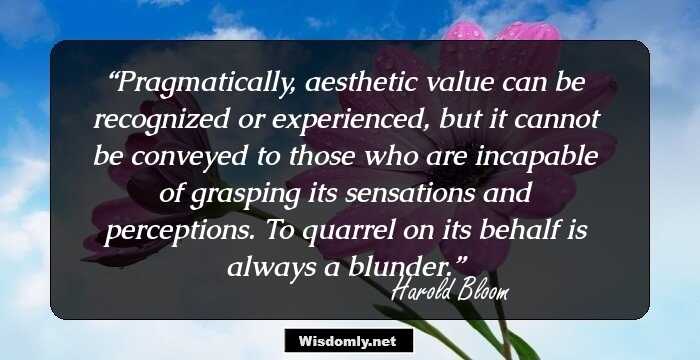
Pragmatically, aesthetic value can be recognized or experienced, but it cannot be conveyed to those who are incapable of grasping its sensations and perceptions. To quarrel on its behalf is always a blunder.
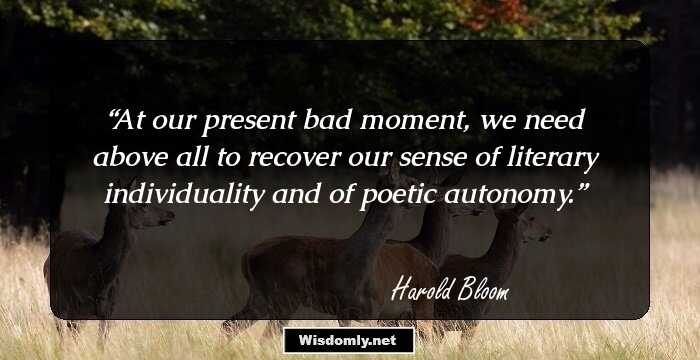
At our present bad moment, we need above all to recover our sense of literary individuality and of poetic autonomy.
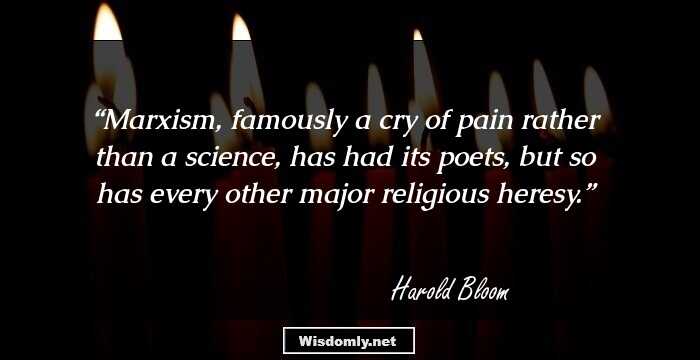
Marxism, famously a cry of pain rather than a science, has had its poets, but so has every other major religious heresy.

(Wallace) Stevens turns to the idea of the weather precisely as the religious man turns to the idea of God.
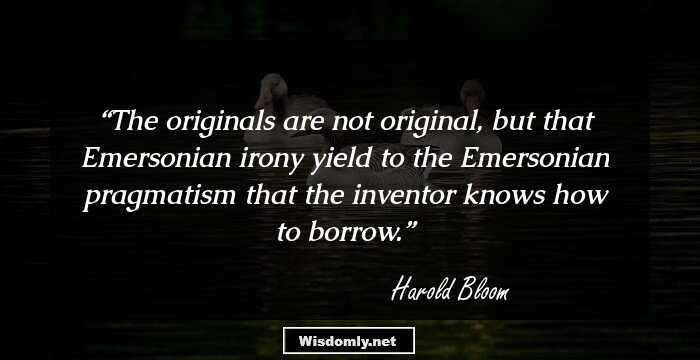
The originals are not original, but that Emersonian irony yield to the Emersonian pragmatism that the inventor knows how to borrow.
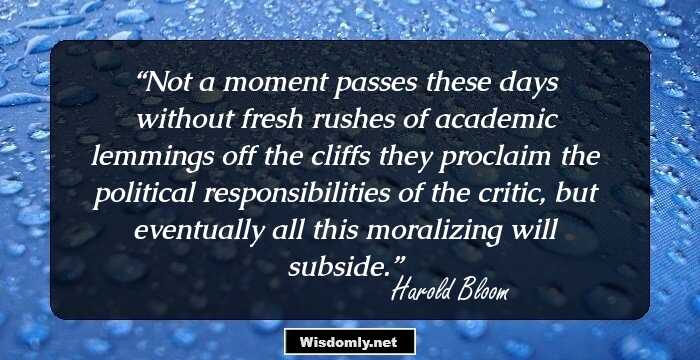
Not a moment passes these days without fresh rushes of academic lemmings off the cliffs they proclaim the political responsibilities of the critic, but eventually all this moralizing will subside.
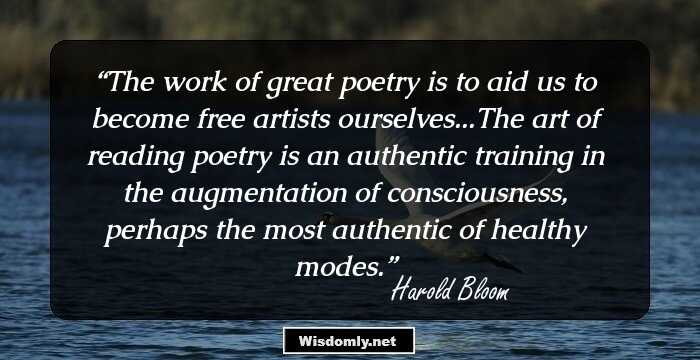
The work of great poetry is to aid us to become free artists ourselves...The art of reading poetry is an authentic training in the augmentation of consciousness, perhaps the most authentic of healthy modes.
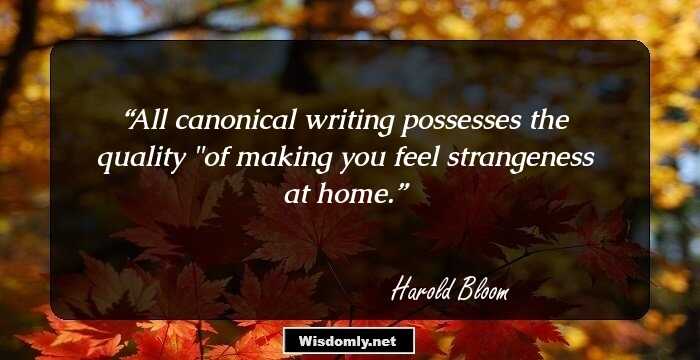
All canonical writing possesses the quality "of making you feel strangeness at home.










